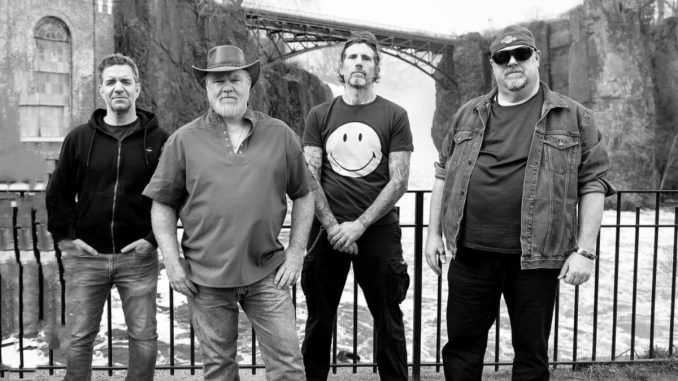| About WHO ON EARTH
Somebody needed to pick up the torch for hard rock and heavy metal with real grit and gusto and without a gimmick. Enter Who On Earth. The New Jersey quartet — Coosh [vocals], Pete Rizzi [bass], Joe D’Aqui [drums], and Steve Eagle [guitar] — deliver a one-two punch of hard-hitting hooks and airtight instrumentation bolted down by pummeling grooves and piercing riffs. With virtuoso guitarist and producer Mike Orlando [Adrenaline Mob, Noturnall] in their corner, the musicians pay homage to rock’s past as they usher in its future on their independent full-length debut, Blame.
It all gestated from a question…
“We wanted to fill in the blank of ‘Who On Earth is going to bring back good rock and metal?’,” explains Pete. “We grew up on the new wave of British heavy metal and classic rock. We went through grunge and other great genres of metal. We wanted to resurrect the melodies, hooks, and guitar solos. We went back to our roots, yet upgraded everything with modern production.”
The group made their bones through countless gigs across the Tristate area in every dive bar and concert hall with a stage. Along the way, Coosh and Pete tore up venues as part of MadHaus, performing marathon covers. In 2021, the longtime friends chose to forego covers, hunker down, and compose an original album. Pete invited Joe D’Aqui—the ever-versatile drummer of his thrash band PIERCED—to join the fold. In order to bring the record to life, the band hit the studio with none other than Mike Orlando. Over the course of the next year, the guys endured numerous COVID delays as they recorded with Orlando behind the board as producer, engineer, and “stunt” guitarist. Nodding to everyone from Black Sabbath, Iron Maiden, and Metallica to Rush, Alice In Chains, and Tool, they placed storytelling in the spotlight.
“Most of our songs are complete stories from start to finish,” notes Coosh. “We’re talking about our lives.”
In the end, Who On Earth fills a void for rock ‘n’ roll.
“We just tried to write good songs,” Pete leaves off. “We’ve gone back to what we grew up on. It’s still valuable and relevant. It can’t die.” |

